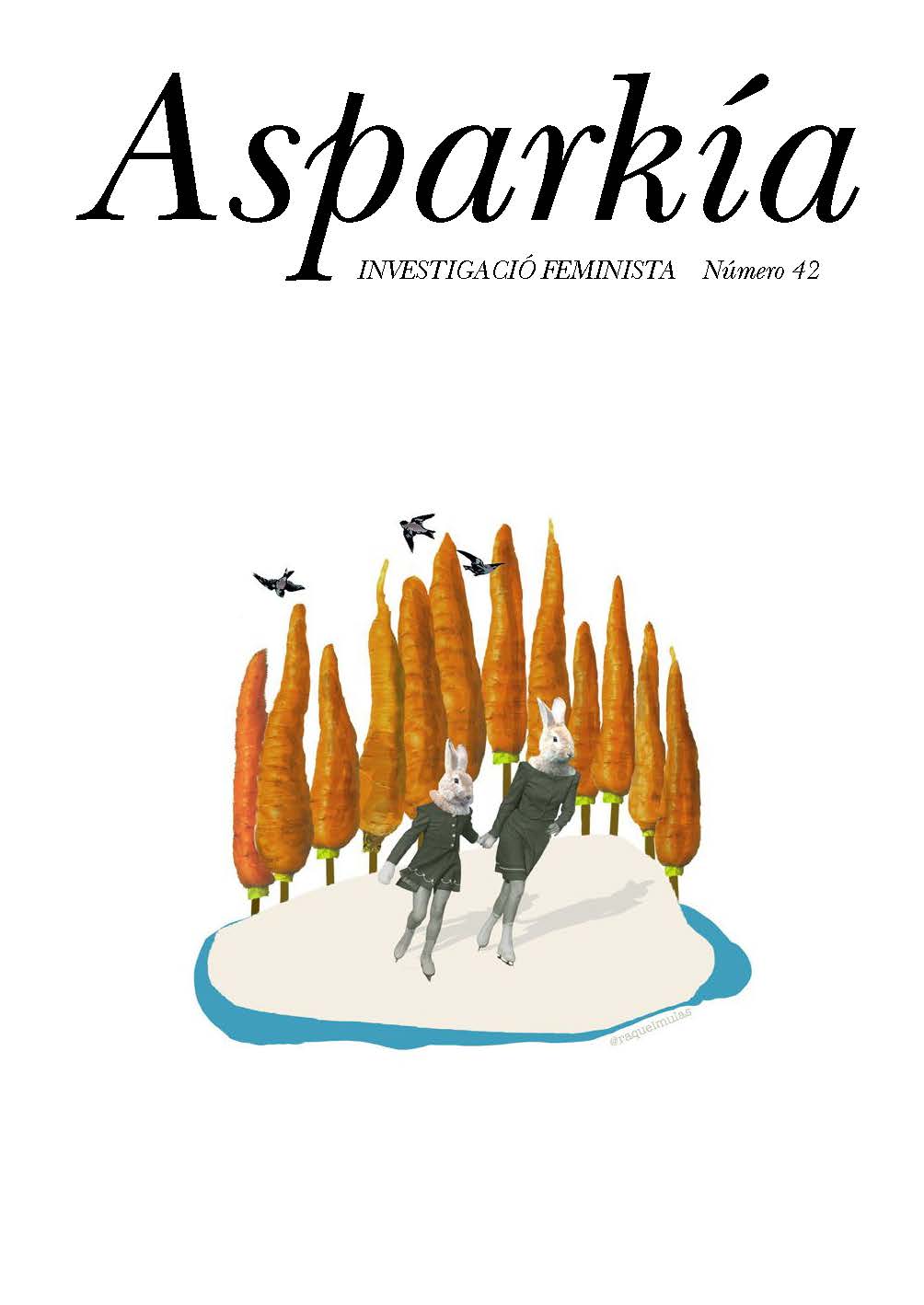DUES VISIONS FEMINISTES EN EL CINEMA D'AGNÈS VARDA: DE L'ORTODÒXIA A LA DISSOLUCIÓ
Contenido principal del artículo
Resumen
En el següent article, s’analitzarà una part de l’obra cinematogràfica de l’Agnès Varda des de la seva faceta feminista. En concret, es posarà l’accent sobre el moviment de la segona onada, emmirallant-lo i contrastant-lo amb els exemples de Réponse de Femmes (1975) i L’une chante, l’autre pas (1976). En segon terme, com a hipòtesi de treball, s’extrapolarà la deriva antimetafísica del postfeminisme i s’aplicarà a l’analisi del documental Les glaneurs et la glaneuse (2000), on el tema no gira explícitament al voltant de l’univers femení, sinó que es posa l’accent sobre la representació de l’alteritat.
Descargas
Detalles del artículo
Citas
Burch, Noël. (2008 [1968]). Praxis del cine. Editorial Fundamentos. Trad. Ramón Font.
Cixous, Hélène. (1995 [1992]). La Risa de la Medusa. Ensayos sobre la escritura. Editorial Anthropos. Trad. Ana María Foix.
Collin, Françoise. (2006). El sujeto y el autor. O el acto de escribir como acto universal en Segarra, Marta (Ed.), Praxis de la diferencia: liberación y libertad.
Deroo, Rebeca. (2009). Confronting Contradictions: Genre Subversion and Feminist Politics en Varda, Agnès L’une chante, l’autre pas. (17, 3, pp. 249-265). Modern & Contemporary France.
Garcés, Marina. (2016). Fora de classe. Textos de filosofia de guerrilla. Arcàdia.
G’sell, Eileen. (2018). Agnès Varda’s Utopian Musical Homage to Feminism from the 1970s. Hyperallergic. Recuperat en 16/01/2021 de https://hyperallergic.com/445718/agnes-vardas-feminist-musical-brooklyn-academy-music/
Guasch, Anna María. (2005). Los lugares de la memoria: el arte de archivar y recordar. Materia, Revista del Departamento de Historia del Arte, 5, 157-183.
Hottell, Ruth. (1999). Including Ourselves: The Role of Female Spectators in Agnès Varda’s Le Bonheur and L’Une chante, l’autre pas. Cinema Journal, , 52-71.
Ince, Kate. (2013). Feminist Phenomenology and the Film World of Agnès Varda. Hypatia, 28(3), 602-617.
Merino, Imma. (2019). Agnès Varda. Espigadora de realidades y de ensueños. Donostia Kultura.
Moi, Toril. (1999). What is a Woman? And Other Essays. Oxford University Press.
Mulvey, Laura. (1975). Visual Pleasure and Narrative Cinema. Screen, 16(3), 6-18. Trad. Placer visual y cine narrativo, dins de Wallis, Brian (2001) Arte después de la modernidad. Akal. Trad. César Rendueles, Carolina del Olmo.
Spivak, Gayatri Chakravorty. (2009). ¿Pueden hablar los subalternos? MACBA. recuperat en 17/01/2021 de https://www.macba.cat/es/aprender-investigar/publicaciones/pueden-hablar-subalternos. Trad. Manuel Asensi.
Williams, Raymond. (2009 [1977]. Marxismo y literatura. Las Cuarenta. Trad. Pablo di Masso.


